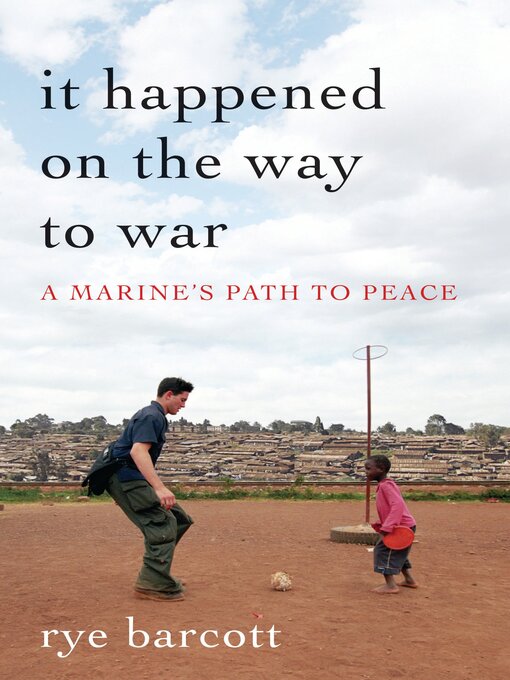In 2000 Rye Barcott spent part of his summer living in the
Kibera slum of Nairobi, Kenya. He was a college student heading into the
Marines, and he sought to better understand ethnic violence-something
he would likely facelater in uniform. He learned Swahili, asked
questions, and listened to young people talk about how they survived in
poverty he had never imagined. Anxious to help but unsure what to do, he
stumbled into friendship with awidowed nurse, Tabitha Atieno Festo, and
a hardscrabble community organizer, Salim Mohamed.
Together, this
unlikely trio built a non-governmental organization that would develop a
new generation of leaders from within one of Africa's largest slums.
Their organization, Carolina for Kibera (CFK), is now a global pioneer
of the movement called Participatory Development, and washonored by Time
magazine as a "Hero of Global Health." CFK's greatest lesson may be
that with the right kind of support, people in desperate places will
take charge of their lives and create breathtaking change.
Engaged
in two seemingly contradictory forms of public service at the same
time, Barcott continued his leadership in CFK while serving as a human
intelligence officer in Iraq, Bosnia, and the Horn of Africa. Struggling
with the intense stress of leading Marines in dangerous places, he took
thetools he learned building a community in one of the most fractured
parts of Kenya and became a more effective counterinsurgent and
peacekeeper.
It Happened on the Way to War is a true story
of sacrifice and courage and the powerful melding of military and
humanitarian service. It's a story of what America's role in the world
could be.



